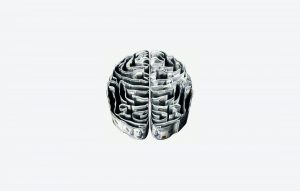One in five patients who contract the coronavirus will develop a mental health illness within the first three months after testing positive.
A new study, published in Lancet Psychiatry, notes nearly one in five people who contract the coronavirus will receive a mental diagnosis within three months of testing positive. This is a staggering 20%, which is indicative of an increased need for mental health services.
Researchers from Oxford University and NIHR Oxford Health Biomedical Research Centre collected the electronic health records of 70 million U.S. patients, including 62,354 who had been diagnosed with the virus from January 20 to April 1 2020 but did not require hospitalization and found that “18% of patients were diagnosed with a mental health issue in the 14 to 90 days” after a positive test, according to the study. The team used the TriNetX Analytics Network, a network that captures anonymized data from electronic health records in 54 health-care organizations across the nation.
What’s more, the team found the likelihood of a coronavirus patient being diagnosed with a mental health ailment for the first time was twice as likely as six other conditions examined – with anxiety disorders, sleep disturbance, and dementia most prevalent. The six other conditions included influenza, other respiratory tract infections, skin infection, cholelithiasis, urolithiasis, and large bone fracture. Those with an existing mental health diagnosis were “65% more likely to be diagnosed” with COVID-19.

The authors note, “a psychiatric diagnosis in the previous year was associated with a higher incidence of COVID-19 diagnosis (relative risk 1·65, 95% CI 1·59–1·71; p<0·0001). This risk was independent of known physical health risk factors for COVID-19, but we cannot exclude possible residual confounding by socioeconomic factors.” Those with the highest rates of contracting the virus had attention deficit hyperactivity disorder (ADHD), bipolar disorder, depression, or schizophrenia.
“We know from previous pandemics that mental health difficulties usually follow in survivors, and this study shows the same pattern after COVID-19, so it is not unexpected,” said Professor Til Wykes, Vice Dean for Psychology and Systems Sciences at King’s College London’s Institute of Psychiatry, Psychology and Neuroscience. “This is clearly the tip of an iceberg. We need to develop as many different, accessible forms of mental health support as possible.”
The authors also note, “Adverse mental health consequences of COVID-19, including anxiety and depression, have been widely predicted but not yet accurately measured. There are a range of physical health risk factors for COVID-19, but it is not known if there are also psychiatric risk factors.” Thus, the study represents an important undertaking to account psychiatric needs amid the pandemic.
Because anxiety, depression and other mental health concerns have increased amid the pandemic, so too has drug and alcohol use. The National Drug Helpline recently flagged 28 states for increased risk overdose deaths due to opioids and other drugs. The 28 states at highest risk are Arizona, Arkansas, California, Colorado, Connecticut, Delaware, Florida, Georgia, Illinois, Indiana, Kentucky, Maryland, Michigan, Nevada, New Jersey, New York, North Carolina, Ohio, Oregon, Pennsylvania, Rhode Island, South Carolina, Tennessee, Utah, Vermont, Virginia, West Virginia and Wisconsin, officials report.
The potential for the coronavirus to cause long-term residual effects is high, and without any end in sight, many have turned to substances to cope. The need for teletherapy and community-based harm reduction strategies has increased exponentially.
Sources:
One in five COVID-19 patients develop mental illness within 90 days – study
One in five covid-19 patients are diagnosed with a mental illness within three months


Join the conversation!